The Times They Are a-Changin' for Bharat Forge
Under Baba Kalyani, Bharat Forge is not just looking to protect its profit margins but also embrace the winds of change with aplomb
For a couple of decades after India’s independence, the automobile industry was almost non-existent like most other industries. Almost everything including the ancillaries and infrastructure needed for the industry were either scarce or absent and therefore imported.
It was during such times that Neelkanth Kalyani of Karad, near Sangli in Maharashtra, set up Bharat Forge around 1964 after industrialist S L Kirloskar encouraged him to set up a forgings and crankshafts unit for the engines made at the Kirloskar plant in Pune. Once he was convinced about the business opportunity therein, Neelkanth, who was an agriculturalist, invested his entire life savings of about Rs 500,000 in the company along with a couple of acquaintances, who contributed a similar amount. The rest came from farmers around the sugar belt, who also contributed from their meagre earnings.
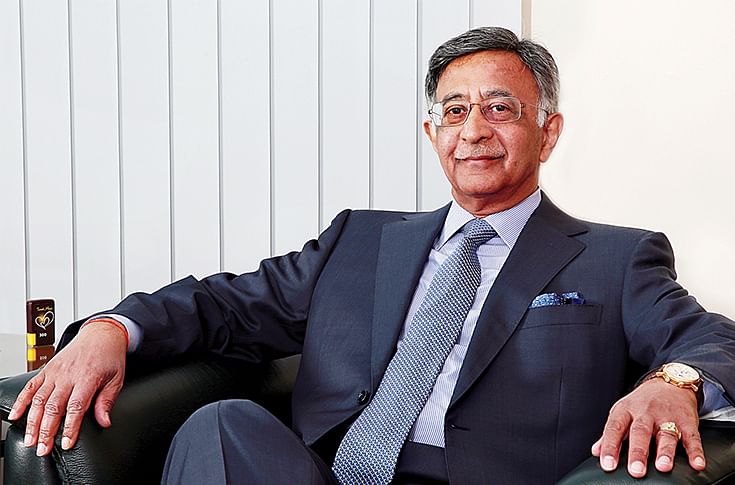
Baba Kalyani: "By 2050, Bharat Forge will be a very different company. It will not be a forging company for sure. It will be a technology company doing some fantastic things.”
In a different part of the world, the same year (1964) was also when legendary rock singer Bob Dylan released the seminal song ‘The Times They Are a-Changin’, which turned into an anthem for change and over time influenced generations. Bharat Forge kept changing with the passage of time too.
On the lines of change as penned by Dylan, Bharat Forge, headquartered in Pune, over a period of five decades, grew into India’s largest global forging company with strong metallurgical expertise, design, engineering and manufacturing capabilities.
Its manufacturing footprint today extends across India, Germany, Sweden, US and France. The company focussed on portfolio diversification to amplify growth and de-risk business. While automotive continues to be its primary business, the company has created a significant presence in industrial sectors, defence and aerospace, oil and gas, marine, power, rail, construction and mining. The industrial business now accounts for about 44 percent of overall revenues in FY2019.
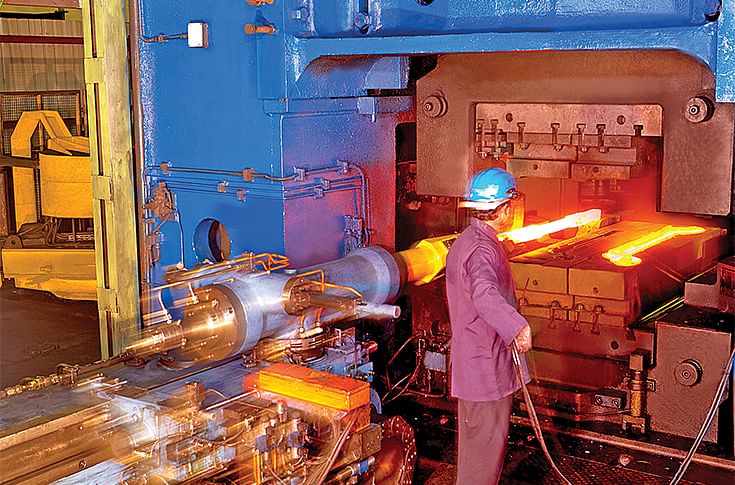
Bharat Forge is the largest exporter of forged auto components from India and one of the leading chassis component manufacturers in the world. Its customer base includes nearly every global automotive OEM and Tier 1 supplier.
According to the company, these segments provide more resilience and stability to the business, which could be true for the current state of the Indian economy. In FY2019, Bharat Forge’s consolidated revenue crossed the Rs 10,000 crore-mark with exports generating $500 million (Rs 3,557 crore) or 35 percent of the total earnings, indicating overseas shipments constitute a good buffer to a difficult domestic market. Despite the global slowdown, the company managed to win about $50 million of new business last year. The company’s global headcount is over 10,000.
A large part of this dynamic growth has come under the leadership of Neelkanth’s son B N Kalyani, the current chairman and managing director, who joined the company in 1972, at a time when it was in the red despite recording a turnover of Rs 3.75 crore.
Forging a new future
What does the future hold for Bharat Forge? Though Dylan said, ‘The future for me is already a thing of the past — You were my first love and you will be my last,’ Kalyani seems certain about his vision for year 2050: “It will be a very different company. It will not be a forging company for sure. It will be a technology company, doing some fantastic things in technology.”
Emphasising that forging may just be one of the parts of Bharat Forge's overall portfolio, Kalyani reiterates that the forging industry will undergo dramatic change and the conventional industry as it is today will not survive.
Bharat Forge has a 49 percent stake in Pune-based electric bike start-up Tork Motors. This is in line with its strategy to diversify into electric mobility. In July 2018, it invested in UK-based Tevva Motors, an electric powertrain solution provider for commercial vehicles.
As the world slowly but surely moves towards greener forms of mobility, Bharat Forge does not want to be left behind in the race. The conglomerate thus kicked off its new journey around three years ago in a move to become a technology company. The company has already put in a lot of resources in developing solutions across the entire spectrum of electric vehicles, from low voltage to high-voltage electrification technologies and increased content per vehicle. This is apart from exploring business development opportunities in the two- and three-wheeler and commercial vehicle space.
Kalyani reveals that realising the potential that new technology offers, his company has already invested in almost eight start-ups in the past 6-8 months covering electronics, composites, high technology and electric motorcycles. According to Kalyani, his strategy has been to create a ‘string of pearls’, referring to the investments in the new-age start-ups. Kalyani claims that his company has set up big-tech centres where technologies are being developed including those for artificial intelligence, digital centres and microwave technology, among others.
Further, making its intention clear to play a bigger role in the auto industry’s drive towards electrification, Bharat Forge has begun making strategic investments to gain technical expertise and faster go-to-market strategy. Last February, it invested around Rs 30 crore in Pune-based Tork Motors, a developer of technology for electric motorcycles and electric three-wheeler powertrains. In June 2019, the investment was hiked by another Rs 4 crore in Tork, taking its equity share to around 49 percent. Ratan Tata, chairman emeritus at Tata Sons and Bhavish Aggarwal, founder of ride-hailing cab aggregator Ola Cabs, are the other investors in Tork. The Kapil Shelke-led Tork Motors is now in the process of setting up a plant in Pune with a production capacity of 60,000 units of the T6X electric performance bike.
The acquisitions are also in developed markets. In June 2018, Bharat Forge picked up a strategic stake in UK-based Tevva Motors, an electric powertrain solution provider for commercial vehicles for 10 million pounds (Rs 90 crore). The deal gave it the rights for commercial usage of technologies developed by Tevva within India.
Bharat Forge's UGV (Unmanned Ground Vehicle) at the Magnetic Maharashtra expo last year. This ATV, which is designed to perform safety and security missions, has autonomous operation.
According to Kalyani, the technology can be used on a 7- or 14-tonne bus for city or school transport. Bharat Forge engineers are currently testing a Tevva tech-equipped commercial vehicle every day. The company claims that this very specialised technology with complex software and hardware is well suited for Indian conditions. “We are building the blocks that are required for the e-mobility business. It can be made into a truck, bus or even delivery van. The e-commerce industry uses delivery vans, which will all be electric in the future. This is how the industry evolves,” explains Kalyani as regards the vehicle testing technology derived from Tevva Motors.
In June this year, the Kalyani Group bought a 26 percent stake in Aeron Systems for about Rs 10 crore. Aeron Systems deals in inertial navigation technology in the domestic market, having successfully supplied a range of fully indigenous inertial navigation systems for land and airborne applications.
In September this year, Bharat Forge completed an investment of 11.35 million euros (Rs 89 crore) to form a 50:50 JV with Germany's Refu Electronik GmbH to develop, manufacture and sell on-board controllers and components, mainly drives, invertors, converters (including AC/DC) and all kinds of auxiliary applications, related power electronics and battery management (BMS).
Furthermore, last year Bharat Forge opened an R&D facility in the UK, at the MIRA Technology Park, the leading automotive technology park, where it will be developing components and sub-systems focused on EVs. This facility will complement the capabilities and knowledge in the Kalyani Centre for Technology & Innovation (KCTI) & Kalyani Centre for Manufacturing Innovation (KCMI) in Pune focused on delivering solutions for EVs. KCTI and KCMI (Kalyani Centre for Manufacturing Innovation) are the two significant enablers of innovation for Bharat Forge.
Talking about the company’s ability to scale up, Kalyani says, “It’s very easy to do,” emphasising that once the technology gets developed, “it does not require much of capital to scale it up.” He feels one has to be ready when the change takes place in the market.
Offering insight based on his longstanding industry experience, Kalyani claims that how far the market develops will depend to a large extent on the regulations put up by the government. Citing examples including that of Tesla, Kalyani emphasises how the government regulations in California that insist upon 20 percent EVs paved the way for the dynamic American electric OEM, which recently revealed the radical Cybertruck. Kalyani is hopeful a similar EV market-growth enhancing norm is introduced in India. He expects the EV market to take off in another 5-6 years.
Taking on the slowdown
Like every other player in the Indian automotive industry, Bharat Forge too has seen its growth impacted due to the ongoing slowdown. The average capacity utilisation of all Bharat Forge plants in India has gone down by around 50 percent, prompting the management to cut down on new capital expenditure. In fact, the company has decided not to undertake any new capex for the next two years or even thereafter.
In FY2019, Bharat Forge’s consolidated revenue crossed the Rs 10,000 crore-mark with exports generating $500 million (Rs 3,557 crore) or 35 percent of the total earnings. It remains bullish on catering to the defence equipment market.
Kalyani believes the ongoing slowdown is cyclical. He points out that the current slowdown has come after about a decade of consistent growth; a similar slowdown in 1995 had lasted for about five years. He says the growth of the automotive sector, especially commercial vehicles, is linked directly with the country’s GDP. Under normal circumstances, growth in the auto industry remains twice that of the GDP figure. For example, when GDP was hovering around 7-8 percent, India Auto Inc’s growth was at about 14-15 percent. However, when GDP falls below 5 percent, then the growth rate of the automotive sector comes down sharply because there is too much of surplus capacity already in the marketplace. India's GDP has slid to a six-year low of 4.5 in Q2 FY2020. With the Reserve Bank of India's forecast of 5 percent GDP growth for overall FY2020, the coming year will be a challenging one for the automotive industry — OEMs, suppliers and the entire supply chain.
Is the current slowdown the worst ever? Kalyani’s point of view is that India’s economy is much larger now than in 1995. The economy currently stands at around $2.75 trillion, while it was just under $1 trillion in 1995. Secondly, entry of new-age business models such as e-commerce and start-ups has generated business of $140 billion, which is more than what some of the biggest Indian companies in conventional business have achieved.
Strong proponent of Make in India
Kalyani has always been a strong proponent of Make in India and strives to drive the domestic manufacturing mantra at government and industry forums. His firm belief is that India missed a number of chances in the past to become self-reliant.
In an earlier interview, he told Autocar Professional that the country lost the electronic race in the 1980s because there were some people sitting in the system who believed that we did not need any external help to create an electronic industry. “We missed one complete electronic industrial revolution,” he points out. In January this year, a panel led by Kalyani suggested import substitution in manufacturing SEZs.
The government’s Make in India programme in its present form was rolled out in 2014 and aims to transform the country into a global manufacturing hub. The plan blueprint seeks to raise the share of manufacturing in GDP to 25 percent and create 100 million jobs by 2022. In 2018, data from the Ministry of Statistics and Programme Implementation revealed that the share of manufacturing remained at around 16.83 percent of the total gross value added (GVA). Clearly, much more needs to be done.
Kalyani says the Make-in-India concept has multiple components, albeit it has not materialised to the extent which it should have. The government, on its part, has taken a number of measures in the form of policies to encourage companies which produce in India. “If your manufacturing sector is not strong, the country cannot be strong,” the Bharat Forge CMD asserts.
In the defence sector, the company has invested in creating a manufacturing system for artillery guns. In mid-2019, Kalyani Rafael Advanced Systems (KRAS) bagged a $100 million (Rs 684 crore) contract from Israel's Rafael Advanced Defence Systems for manufacturing 1,000 BARAK-8 MRSAM missile kits for the Indian Army and Air Force. KRAS is a 49:51 JV between Rafael Advanced Systems and Kalyani Strategic Systems (KSSL), with Bharat Forge holding a 51 percent stake.
According to reports, none of the major Make in India defence projects, worth Rs 3.5 lakh crore, have taken off in the past six years or so and are stuck at various levels of implementation. “My passion is in creating very strong defence manufacturing. I strongly believe as an Indian, that India needs a strong defence manufacturing platform — the ability to design, develop its own products for its army, navy and air force,” says Kalyani.
Kalyani is known for his penchant to take the road less travelled. So, it’s not surprising that his foreword in Bharat Forge’s FY2019 annual report quotes Albert Einstein: “The one who follows the crowd will usually go no further than the crowd. The one who walks alone is likely to find himself in places no one has ever been before.”
(This article was first published in the December 15, 2019 Anniversary issue of Autocar Professional)
RELATED ARTICLES
RSB Group Prepares for Hyper-Growth: New Markets, Tech and Mission ₹10,000 Cr
From a small workshop in Jamshedpur to an engineering group with global reach, RSB Transmissions is preparing for its mo...
Beyond Helmets: NeoKavach Wants to Make Rider Airbags India’s Next Safety Habit
As premium motorcycles proliferate and riding culture evolves, an Indo-French venture is betting that wearable airbags, ...
Inside Mahindra Last Mile Mobility’s Rs 500 Crore Modular Platform Strategy
Mahindra Last Mile Mobility has launched the UDO, an electric three-wheeler built on a new Rs 500-crore modular platform...






 25 Jan 2020
25 Jan 2020
 15660 Views
15660 Views




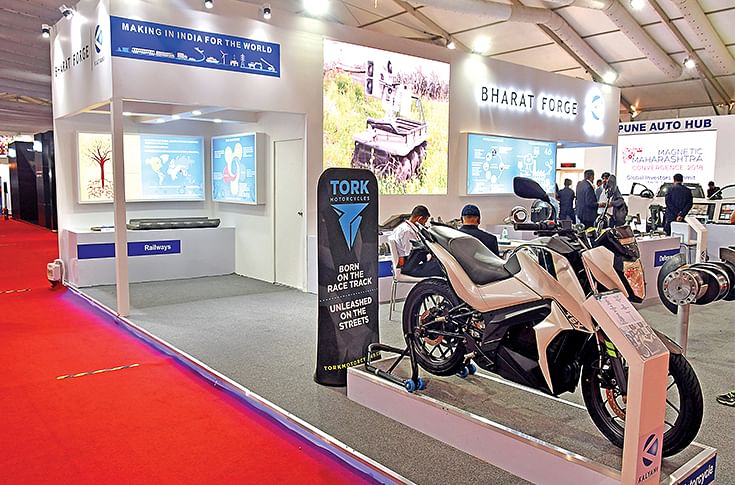
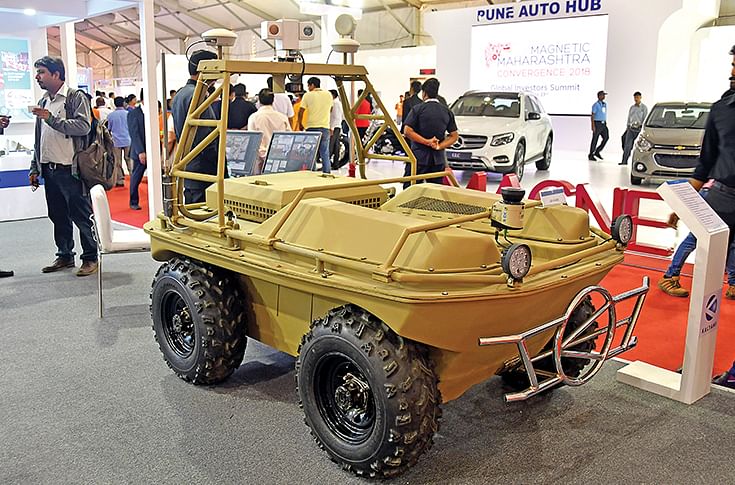
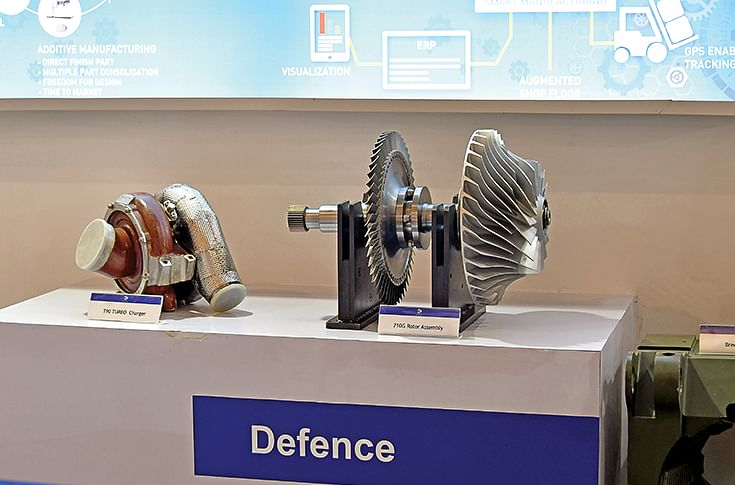

 Darshan Nakhwa
Darshan Nakhwa



 Shahkar Abidi
Shahkar Abidi

